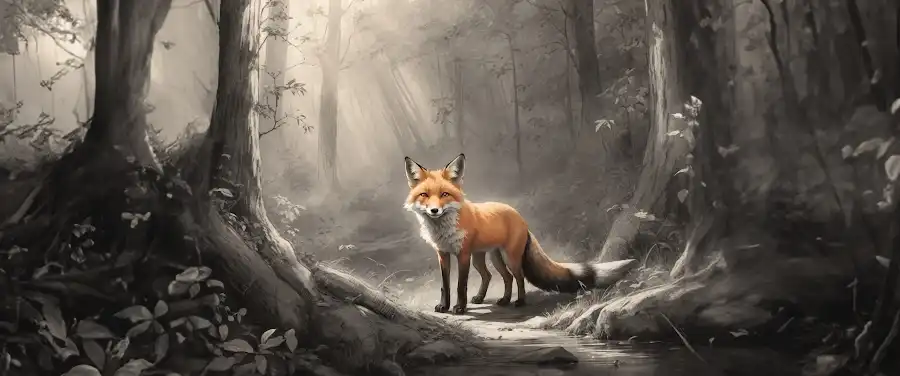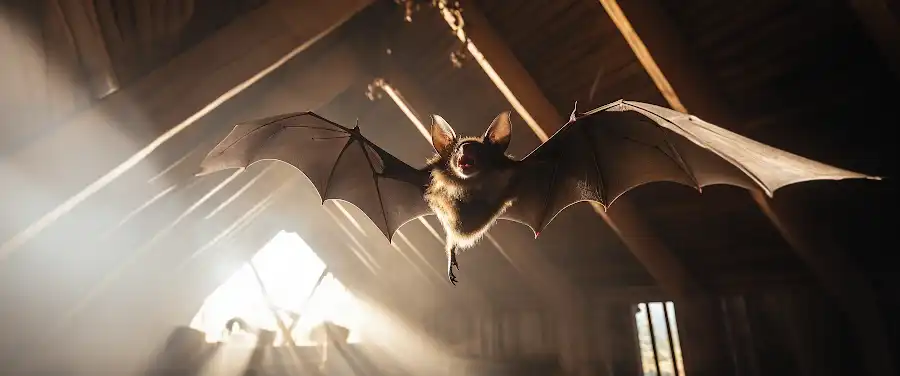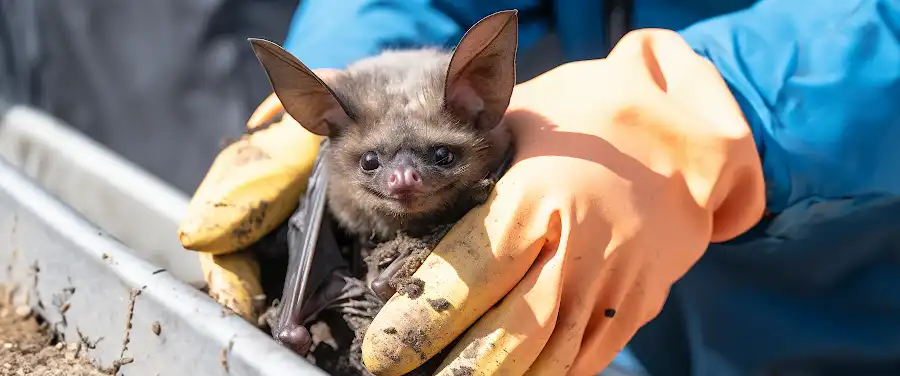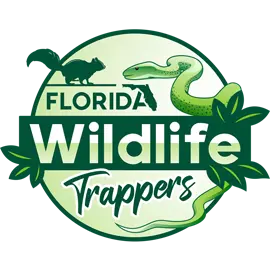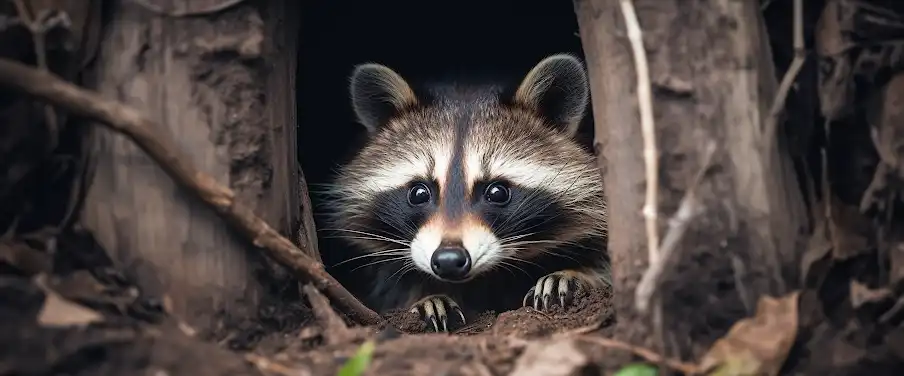
It’s late at night. A familiar rustling sound seeps through your backyard, something you’ve become accustomed to hearing. Little did you know, it’s the very sign of a furry uninvited guest – a raccoon. These nocturnal animals can cause significant damage to your property if left unchecked. Hence, understanding raccoon infestation becomes an essential task for any concerned homeowner.
Raccoons, while cute from afar, they’re not as charming when they’re in your yard, toppling your trash cans and treating your garden like a personal buffet. Digging into the wonders and the woes of the natural world, it’s peculiar how a small creature can invoke such a significant threat to our peaceful living. What’s fascinating is their intelligent nature, sharp memory, and their adeptness in navigating through human spaces. Emphasizing the importance of recognizing infestation signs is the first step towards securing your house from their clutches.
Often mistaken as harmless, raccoons’ behavior includes a lot more than nocturnal frolics and love for shiny objects. Their presence is a situation that needs immediate attention, especially given the potential for these creatures to carry diseases harmful to humans. Not addressing these signs at the right time could lead to a severe raccoon infestation. With their nimble fingers and sharp claws, they can cause extensive damage to your property but more importantly, disturb the overall hygiene and safety of your surroundings. Keep in mind; prevention is always better than cure. As we progress, you’ll cultivate a keener eye for spotting these infestation signs and earn the know-how to take the necessary course of action.
Now, before we delve deep into the indications of an infestation, let us understand these creatures better. What do these sneaky intruders look like? Keeping a record of the physical traits can come in handy while dealing with a possible infestation. So, let’s lift the veil off these masked invaders.
Why do Raccoons Infest Homes?
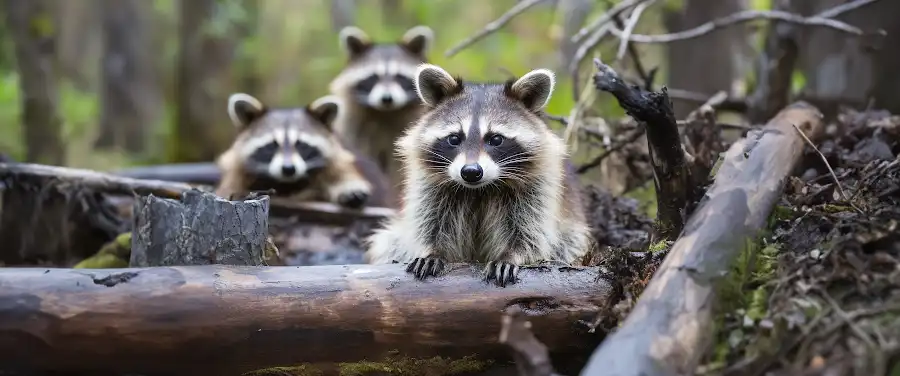
One might wonder why raccoons seem to have a knack for turning human homes into their personal nesting grounds. The primary reasons for this tendency have everything to do with raccoon behavior, specific factors that attract these critters, and the advantages our homes offer to these intelligent and adaptable creatures.
Industry-leading wildlife control professionals, such as Wildlife Control Services, attribute this behavior to the fact that in the wild, raccoons often make homes in hollow trees, ground burrows and brush piles. Our homes, especially structures like chimneys and attics, mimic these natural dens, attracting raccoons in their search for a safe place to nest and keep warm.
Raccoon Behavioral Traits and Infestation
- Scavenging for Food: They are known for their foraging skills. Your garbage bins, pet food, or bird feeders could be supplying an irresistible feast for these nocturnal mammalian invaders.
- Season: Certain seasons may increase their needs for food storage or breeding, leading them to seek shelter in human dwellings.
- Safety: An attic or chimney provides a safe haven from predators and harsh weather elements.
Factors that Attract Raccoons to Your Home
Here’s a snapshot of the key elements that could make your home an ideal spot for a raccoon infestation:
- 1Food: Raccoons are opportunistic feeders and might be attracted by leftovers or pet food
- 2Shelter: Attics, basements, and chimneys provide shelter for nesting and protection
- 3Water: Pool, bird baths, or fish ponds can provide a water source for them
To ensure your peace and safety, it is important to understand these raccoons infesting reasons, and take measures before your home becomes an inviting den for these unwelcome visitors. An attraction free home can save you from an unwelcomed, and potentially expensive, raccoon infestation. This government site provides valuable tips on preventing raccoons from infesting your home.
Subsequently, let’s take a look at some hard to miss signs of a raccoon infestation helping homeowners to identify and address this pest problem proactively.
What are the Common Signs of a Raccoon Infestation?
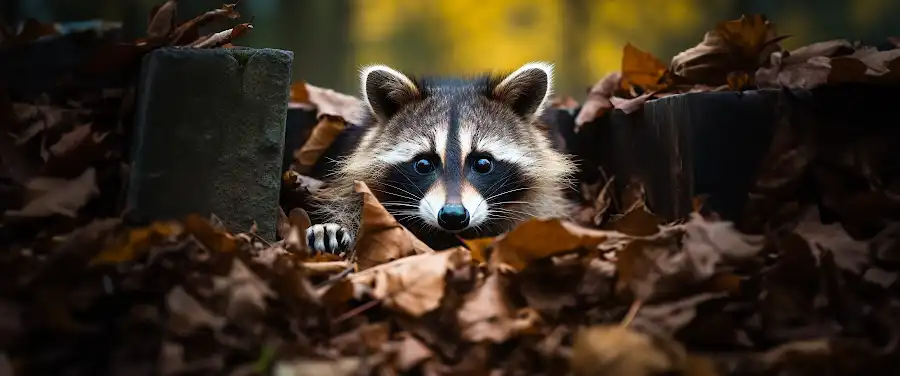
Raccoons are cute and furry, reminiscent of cartoons and stuffed animals you might have enjoyed in your childhood. However, when they turn your home into their playground, it’s anything but adorable. That’s why it’s crucial to recognize the signs of a raccoon infestation early, to prevent them from turning your haven into a raccoon holiday home.
One of the most glaring signs of a raccoon infestation is sightings of the critters themselves. Now, a nocturnal raccoon scuttling about in the dark isn’t out of the ordinary – they’re nocturnal by nature, after all. But if you see raccoons active during daylight hours, that’s generally a clear indication of an infestation. Their daytime activities imply they’ve found a nearby safe and food-filled haven – that’s your home.
Raccoons aren’t exactly the quietest neighbors. They are known to make a lot of noise. You might hear sounds of rustling, scratching, or running around, especially during the night. These tramping sounds from your attic, walls, or crawlspaces are telltale signs that these furry bandits are up to no good.
Damage to your property is a substantial indicator of a raccoon presence. Trash scattered around, upturned gardens, and damaged roof shingles – raccoons are messy houseguests. They’re not picky eaters and can cause a considerable mess in their search for food.
Keep an eye out for raccoon tracks and droppings, the latter being potentially harmful due to the diseases they can transmit. The size and shape of their droppings are similar to those of a small dog and usually contain undigested food particles.
Ever heard the phrase, ‘a man’s home is his castle?’ Well, for raccoons, any safe, dry area can become their castle – or nest, to be more precise. If you notice a lot of debris like leaves, sticks, and trash in your attic or chimney, it may be a raccoon nest.
Last but not least, a foul odor is a sign associated with raccoon invasions. As raccoons are not the cleanest creatures, their waste, leftovers, and in unfortunate cases, deceased comrades, can cause quite a stench.
It’s important to get professional help to get rid of a raccoon infestation, as they may carry dangerous diseases like rabies. Websites like pestworld.org can provide more information.
Our next topic, “ How Does a Raccoon Infestation Affect your Home?” will delve deeper into the potential dangers of having raccoons infest your dwelling. So, stay around!
How Does a Raccoon Infestation Affect Your Home?
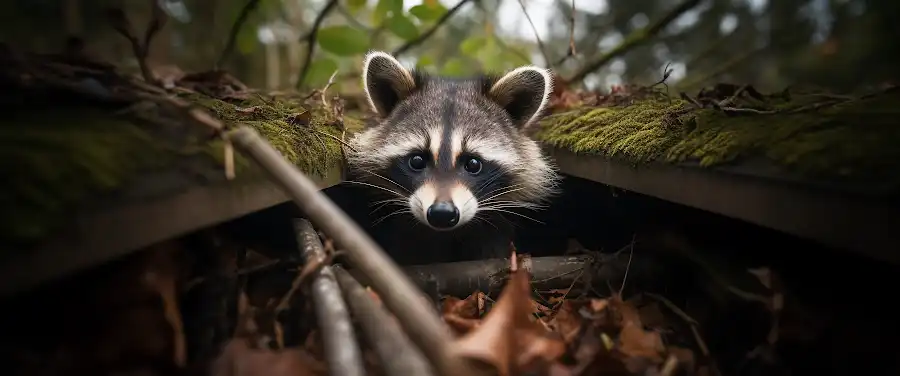
Raccoon infestations can have potentially adverse impact on your home structure, pose serious health hazards, and even risks to your pets. Let’s carefully dissect each aspect:
Impact on Home Structure
Raccoons aren’t just cute bandits with a knack for rummaging through your garbage cans. They can cause significant structural damage to your home. Raccoons are known for their dexterous paws and their ability to pry open weak areas of your house to gain access. From damaging your roof to gnawing on wood and electrical wires, these critters can lead to costly repairs in their quest to find a comfortable home inside your home. The impact of a raccoon infestation on your home structure can be significant. In some cases, these damages may affect the overall aesthetic appeal of your home, and worse still, compromise the structural integrity of your building.
Health Hazards Posed by Raccoons
Raccoons are carriers of several potentially dangerous diseases. These raccoon-related health hazards can pose serious risks to your household. The health threats are not just limited to direct contact with raccoons either; droppings or even remnants from their feeding habits can serve as potential carriers for these diseases. It is essential to have a professional assess and handle the situation to mitigate risks posed by these health hazards effectively.
Risks for Pets
Apart from humans, raccoons can also pose a risk to your pets. Their interaction with pets can potentially result in diseases and injuries. Raccoons are known to be quite protective, particularly when cornered, and physical altercation with pets can lead to severe wounds.
And that’s not the only issue. Raccoons are carriers of rabies, one of the most deadly zoonotic diseases. This infectious disease can spread to pets and potentially infect humans, too.
What Diseases Can Raccoons Carry?
Apart from rabies, raccoons can carry several other diseases. Some of the known diseases spread by raccoons include Leptospirosis, Salmonella, and raccoon roundworm, among others.
Leptospirosis is a bacterial infection that can be contracted from a variety of animals, including raccoons. Salmonella, on the other hand, is usually correlated with food poisoning, but did you know raccoons are carriers too? Their droppings and partially eaten remain may enhance the spread of Salmonella in and around your home.
The raccoon roundworm is another dangerous parasite found in raccoon feces. If ingested inadvertently, this parasite can cause severe infections, leading to an array of symptoms including fatigue, liver enlargement, and even blindness if left untreated.
Whether direct or indirect, the health risks of raccoons are undeniable. Leptospirosis, Salmonella and Raccoon roundworm are just a few of the many zoonotic diseases carried by these pesky critters. It’s therefore important to approach a raccoon infestation with the seriousness it deserves and engage professionals to handle it promptly and effectively.
As we transition to our next topic, we look at how we can confirm a raccoon infestation. At this juncture, you are not just equipped to understand the impact of an infestation, but also the health implications that raccoons bring. In the following section, we will guide you on how to spot telltale signs of these masked invaders in your vicinity.
How Can I Confirm a Raccoon Infestation?
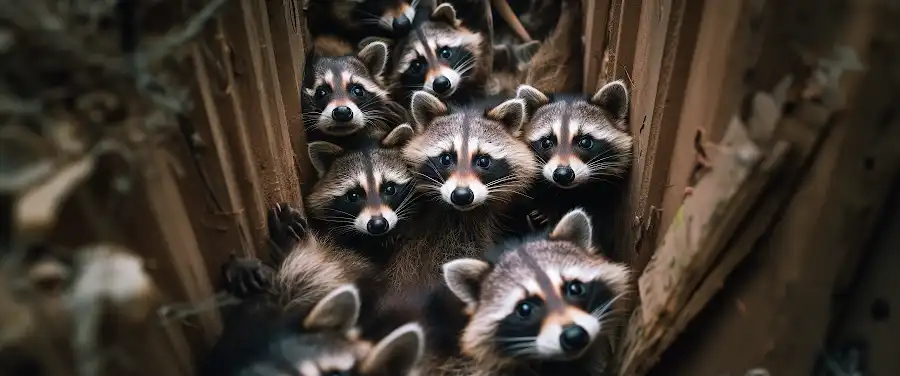
Raccoons are deceptive creatures. They tiptoe into your property in the dead of the night, leaving traces of their misadventures behind. Confirming a raccoon infestation in your property isn’t something out of a detective novel, it’s a reality some homeowners face. It is crucial however to truly confirm whether you have been invaded by these masked fuzzballs or not.
If you notice any suspicious signs such as overturned garbage cans, damage to your home’s exterior, or the unmistakable presence of raccoon droppings, it’s high time you switched on your detective mode. Here’s a quick rundown of how you can get to the bottom of this.
Professional Help for Confirmation
Your first port of call should be to enlist the help of specialists. Pest control authorities are trained to make an expert diagnosis based on any tell-tale signs left by raccoons. They will check for the usual indicators which typically include inspecting for physical damages, checking for raccoon tracks, listening for noise, and looking for raccoon droppings.
According to the National Pest Management Association, pest control professionals close to 27 million homes every year in the US for unwelcome intruders like raccoons. A shocking statistic, right? These professionals can detect even the slightest indication of an infestation, which might be missed by an untrained eye. It’s always worth gathering their inputs for a professional confirmation of infestation.
DIY Infestation Confirmation
That being said, not all signs of a raccoon infestation require a magnifying glass and detective skills. Some indications are quite apparent even to laymen. If you’re inclined to initially tackle this issue on your own, here’s what you need to look out for:
- Unusual noises: Raccoons are nocturnal creatures. Thus, if you hear strange crawling or scurrying noises come nightfall, it might be the sound of these sprites at work.
- Trash disruptions: Raccoons are infamous for their dumpster diving feats. If you regularly wake up to overturned garbage bins, there’s probably a furry bandit behind the mishap.
- Raccoon tracks and droppings: A strong indication of raccoon invasion are their handprints and droppings. They are distinct and relatively easy to identify.
Remember, while DIY infestation confirmation might be a functional initial step, bringing in professionals ensures the situation is handled safely and thoroughly.
Now that you understand cases indicating a raccoon invasion, it’s time you learn about the dangers associated with them. These critters might look cute and fluffy, but they can carry diseases affecting both human and pet health, and cause extensive damage in search of nesting spaces.
Study from NPMA shows close to 27 million homes are treated by professionals in the US. So it’s worth becoming alert at the earliest signs, better safe than sorry, right?
What are the Potential Dangers of a Raccoon Infestation?
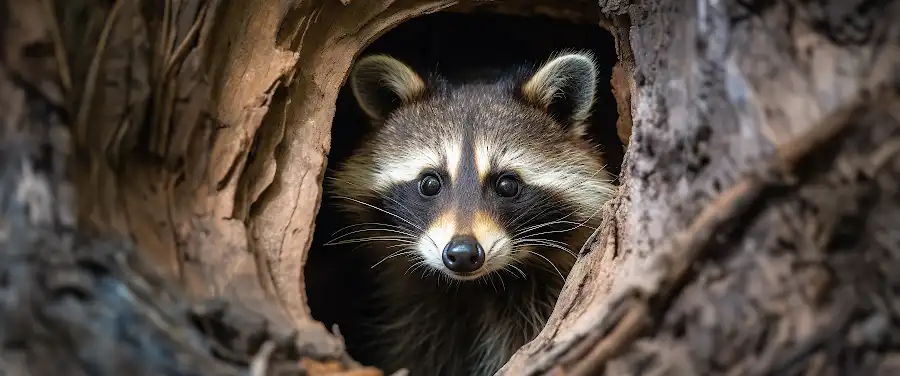
When you think of raccoons, an image of these cunning creatures rummaging through your garbage bins may come to mind. But there’s more to be wary of – a raccoon infestation could cause a great deal of damage, both to your home and to your health. These are not just adorable critters, but potentially hazardous invaders if they choose to make your property their home.
Material Hazards: Damage to Home and Personal Property
One of the most straightforward signs of a raccoon infestation is the damage they cause to your home and personal property. Raccoons are known for their dexterity, using their nimble hands to tear into roofs, walls, ductwork, and insulation. According to a report by the Humane Society, raccoon infestations can cause thousands of dollars in property damage, often going undetected until it becomes severe.
Raccoons love to rummage through trash cans, leaving a mess in their wake. They can destroy gardens and lawns while on their nightly hunts for grubs and worms. Additionally, they may kill small pets or birds if given the opportunity, bringing sadness and grief to homeowners.
Health Hazards: Diseases and Potential Physical Harm
Raccoons are not just destructive – they are also carriers of various diseases, some of which can pose serious health risks to humans and pets. The Centers for Disease Control and Prevention reports that raccoons can carry diseases like leptospirosis, rabies, and raccoon roundworm, which can all be transmitted to humans. If a raccoon sets up residence in your home, they leave droppings and urine that contain these pathogens, potentially contaminating your living spaces and posing a real health hazard.
Can Raccoons Attack Humans?
While raccoons may seem cute and cuddly, it’s important to remember that they are wild animals. Generally, raccoons tend to avoid humans, but if cornered, threatened, or if they have become used to people through frequent contact, they might show aggression.
When they feel threatened, raccoons may bite, scratch, or lash out, and given the diseases they may carry, such as rabies, an attack could have significant implications. A raccoon attack can lead to painful injuries and possibly, disease transmission. Prompt medical attention is advisable following any aggressive encounter with a raccoon.
As valuable as raccoons are to the ecosystem, the risks of a raccoon infestation far outweigh the benefits. Homeowners should be aware of these risks and remain vigilant in recognizing the signs of an unwanted guest.
Conclusion
We hope this informative piece has significantly enlightened you on the Signs of a Raccoon Infestation. Undoubtedly, discerning these signs promptly allows for quick and effective raccoon control action saving you the potential damages raccoons can cause to your home. No one enjoys an unwelcome guest, especially one as mischievous and destructive as a raccoon!
Remember, raccoons are smart, agile creatures, and dealing with them, especially when they have established a stronghold in your home isn’t a walk in the park. It becomes worse when you can’t even identify the signs right away. That’s why it’s crucial to stay alert and to cross-check for these markers promptly.
If the infestation escalates to a severe level, it is advisable to invite professional raccoon control services. These experts have the necessary skills, expertise, and equipment to safely and permanently eliminate raccoons from your home or property. It not only spares you the hassle but also guarantees a hygienic and safe removal process.
So, learned about the potential red flags? Time to roll up your sleeves and make a thorough inspection of your property, ensuring it’s raccoon-free. After all, prevention is better than cure. Regular checks for signs of raccoon activity will help keep your home secure. But should you spot any of these signs, remember, swift action is key.
Don’t underestimate the importance of recognizing and attending to a raccoon infestation. The damages can escalate rather quickly. So why wait and regret later?
Act now and save your home from these unwelcome guests by looking out for those telltale signs. Call in the pros if things get out of hand. It’s time to assert your control over your home and keep it safe from these little bandits!

